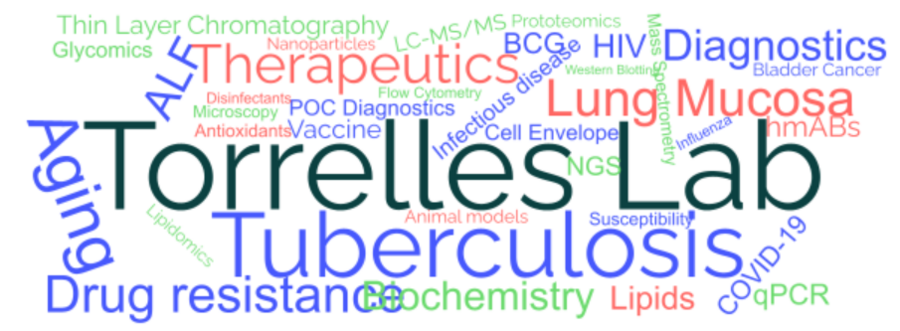Life longevity has significantly increased during the last century, and with people living longer worldwide, we are facing new health challenges. Aging is accompanied by a state of cellular compromise and immune dysfunction, and as we age, we have an increased susceptibility to infectious diseases, and especially, to respiratory diseases. Our laboratory is studying the impact of the lung environment focusing on the role of the alveolar mucosa (also known as alveolar lining fluid, ALF) in driving susceptibility to respiratory infections, in the context of aging. We have demonstrated that the cellular changes that occur in the lung as we age contribute to the dysfunction of critical innate soluble components in ALF, and that this dysfunction has several implications to the infectious disease susceptibility of the lung. We study the lung proteome to correct the ALF deficiencies in aging, and investigate treatment strategies to tackle cellular aging at the systemic level. We also study the use and repurposing of commercially available biologicals to combat immune dysfunction in the lung, and study those treatments in the context of Tuberculosis, COVID-19 and other deadly diseases.

Our lab is working towards depicting mechanisms of susceptibility to respiratory infection during the aging process. Recently, we are focusing on the oxidative state of the lung as we age, where we are able to link accumulation of oxidative stressors in the lung with ALF components dysfunction. This oxidative stress links further to mitochondrial dysfunction in the elderly population. Working with our collaborators, we are looking current strategies to revert the mitochondria induced oxidative stress accumulated in the lung during the process of aging.
